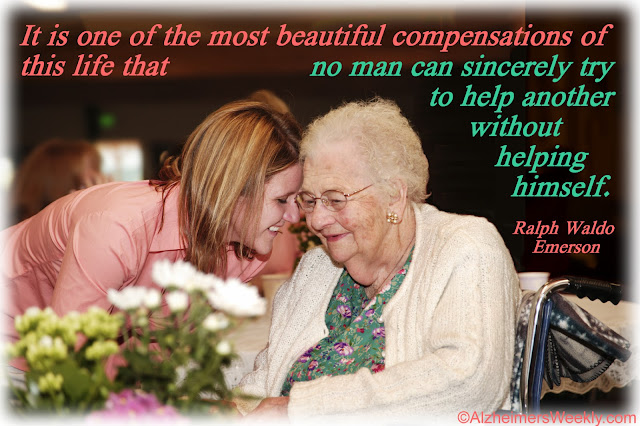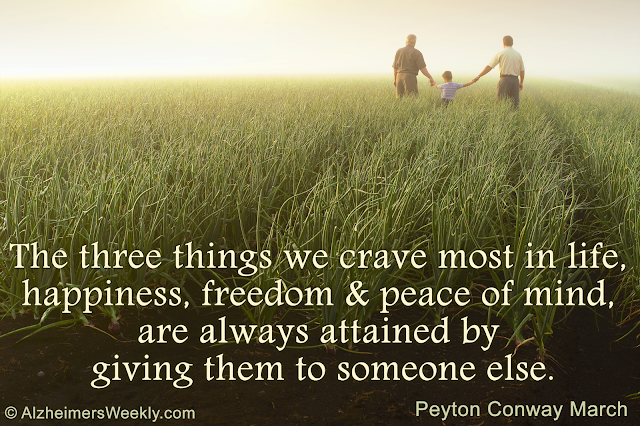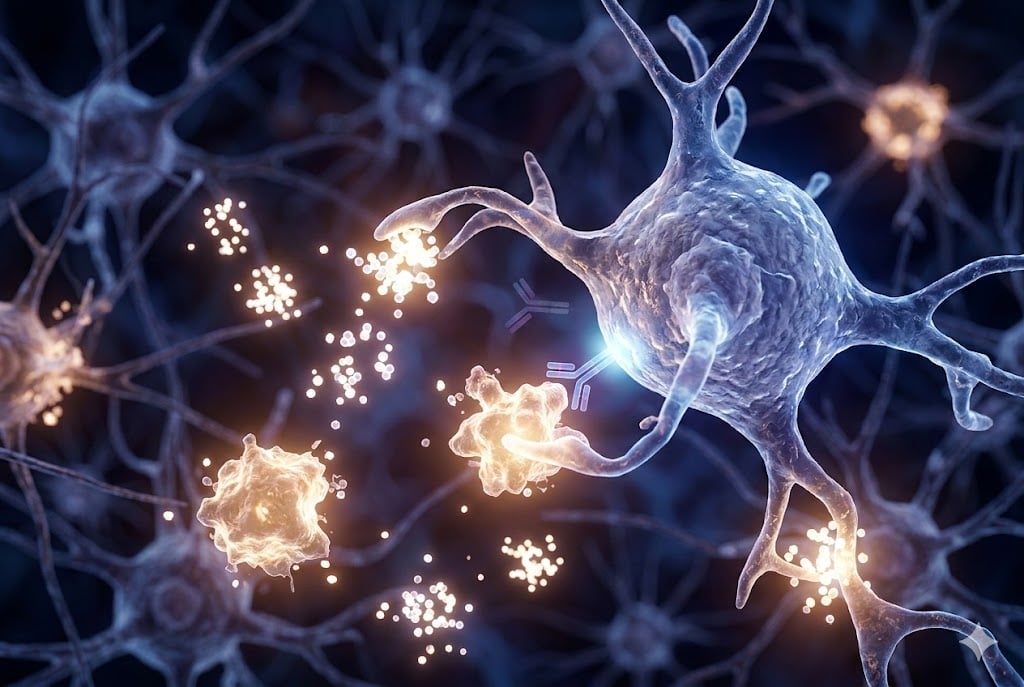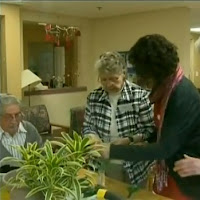
Thought of the Week: Beautiful Compensation
It is one of the most beautiful Compensations of this life thatNo man can sincerely try to help anotherWithout helping himself.

It is one of the most beautiful Compensations of this life thatNo man can sincerely try to help anotherWithout helping himself.

You can’t live a perfect day without doing something for someone who will never be able to repay you.

Every evening, I turn my worries over to God. He’s going to be up all night anyway.

Love grows by giving.The love we give is the only love we keep.

Be Kind,For everyone you meet,Is fighting a hard battle.

The miracle is this:The more we share,The more we have.

Anyone can give up,
It’s the easiest thing in the world to do.
But to hold it together
When everyone else would understand
If you fell apart,
That’s true strength.



Strength is not in our muscles. It is in our soul and spirit.

The co-founder of a caregivers’ organization introduces technology he has found helpful in caring for his grandmother with dementia.

New research reveals that Leqembi’s Fc region switches on microglia — the brain’s immune cells — helping them clear toxic amyloid. Here’s why that mechanism matters for treatment and safety.

People with dementia are enjoying yoga and dance classes at the Alzheimer’s Association. See why caregivers find the classes “EXTREMELY helpful.”

Bringing art and creativity into elder care settings helps families reconnect with loved ones who have dementia. In this moving talk, Anne Bastings shares how.

When a hurricane hits Florida — or anywhere that has a very large population of people with dementia, there are special preparations that should be made by those living with dementia. Check these dementia-in-a-storm readiness lists.

In gardening, people with Alzheimer’s grow fresh plants along with better thinking. It’s a pleasant way to make things easier.

The co-founder of a caregivers’ organization introduces technology he has found helpful in caring for his grandmother with dementia.
No spam, only news and updates.


